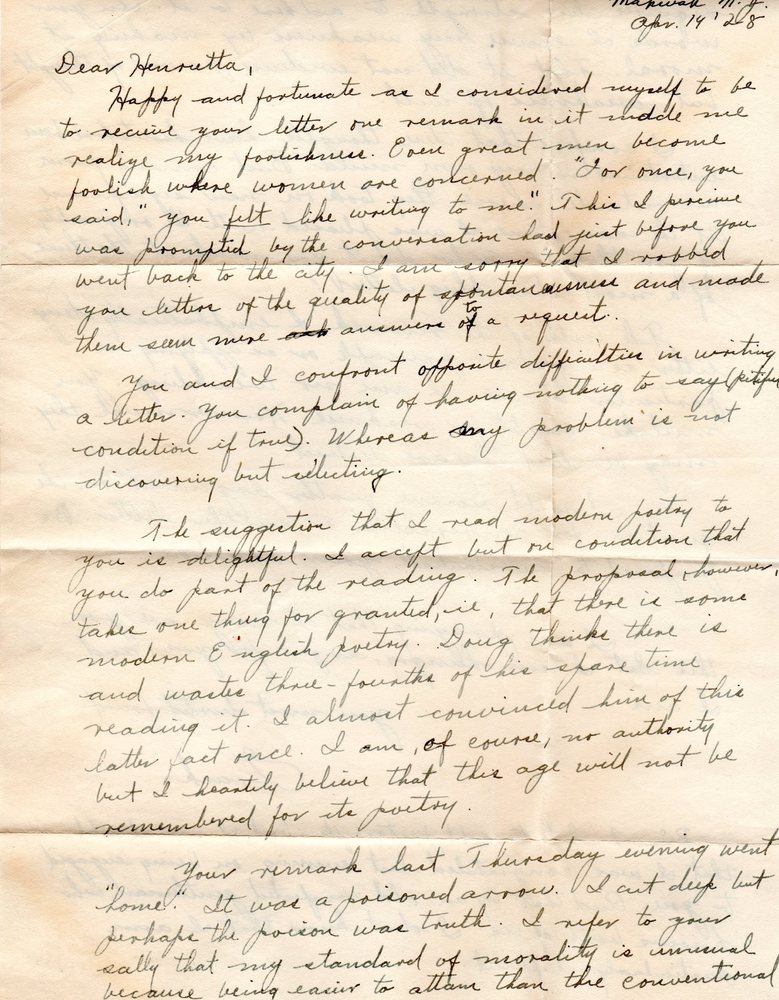Young to Morriss, April 14, 1928
Mahwah, N.J
Apr. 14 '28
Dear Henrietta,
Happy and fortunate as I considered myself to be to receive your letter one remark in it made me realize my foolishness. Even great men become foolish when women are concerned. "For once you said," you felt like writing to me." This I perceive was prompted by the conversation had just before you went back to the city. I am sorry that I robbed your letters of the quality of spontaneousness and made them seem more answers to a request.
You and I confront opposite difficulties in writing a letter. You complain of having nothing to say (pitiful condition if true). Whereas my problem is not discovering but selecting.
The suggestion that I read modern poetry to you is delightful. I accept but one condition that you do part of the reading. The proposal, however, take one thing for granted, ie, that there is some modern English poetry. Doug thinks there is and wastes three-fourths of his spare time reading it. I almost convinced him of this latter fact once. I am, of course, no authority but I honestly believe this age will not be remembered for its poetry.
Your remark last Thursday evening went "home." It was a poisoned arrow. I cut deep but perhaps the poison was truth. I refer to your sally that my standard of morality is unusual because being easier to attain than the conventional [page 2] requires his strength to adhere to it. In your works I excuse my weakness by making it moral. That it did not evidence power of thought but weakness of will.
I confess that these thoughts have heretofore been entertained in my own mind. But coming from an outside source they took on new significance. At the same time I was pleased with the originality of your thought. Why didn't you make it the theme of a most [absorbing?] letter?
The truth of the remark I emphatically deny either as a general principle or as applying in particular to me. I am no weakling. You mistake doubt for weakness however much they may be allied they are distinct.
I will reserve further argument on the question for conversation or another letter. Be prepared to substantiate your assertion.
I am praying that I may see you this Sat. I am hungry, eager for you, and I am
Your most devoted friend
Frank.
P.S. I hate to add postscripts, but I must add that I was congratulated last evening on being engaged to you. And that by an old respected gentleman who knows both of us. I don't know that I am particularly displeased.
